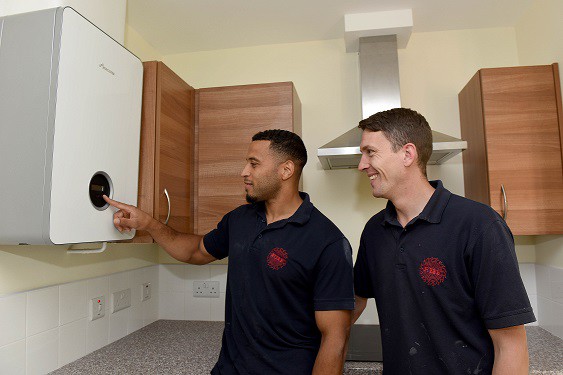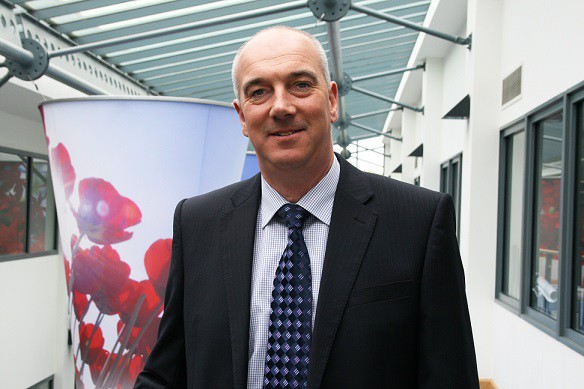The mix of future heat technologies

Pete Mills, Commercial Technical Operations Manager at Bosch Commercial and Industrial, delves into what heating technology may look like in the future
Decarbonising the energy used to heat domestic and commercial buildings continues to be a key aspect of Government policy.
Over the last year we have seen the short-term benefits of lower emissions from transport because of the COVID pandemic.
However, home heating has no doubt seen an increase in emissions as so many of us have worked from home. This emphasises the importance of tackling emissions from heating, particularly if in a post-pandemic world, the trend for working from home continues.
The Prime Minister’s 10-point plan and subsequent Energy White Paper highlights new alternative fuel technologies for heating which are under review
It is clear there shouldn’t be a reliance on one fuel technology, instead we need to take an agnostic view to ensure the UK can reach net zero 2050 carbon emission targets – particularly given the pace of low emission innovation.
Take for example CHP (Combined Heat & Power modules), for decades a staple of plant rooms across the UK, particularly in district heating schemes.
Due to the electricity grid decarbonising much quicker than was imagined even a few years ago, the risk is that any CHP installed now could result in a negative carbon impact, so we see no future for CHP without a decarbonised gas network.
However, the UK energy infrastructure has seen continuous evolution to meet the needs of modern consumer and industrial demand. Heat will continue to be a significant part of our energy requirement, with 85% of us getting our heat through the gas grid. Whatever the future split between the gas and electricity grids and alternative technologies looks like, flexibility is likely to have a value in determining emission reduction.
Keeping an open mind
Some believe that heat pumps should be a one-size solution for our heating issues. However, there is no silver bullet.
In our view, a more future-proof solution would be a hybrid system, where a heap pump is prioritised but has the benefit of being backed up by a boiler that can deal with the peak demand loads. These can deliver significant carbon savings and help to keep costs under control.
Experience to date has shown that over 80% of the kilowatt hours required for many systems can typically be provided through heat pumps with subsequent carbon savings.

Heat networks can also benefit from this and tend to operate below 25% of their peak demand for over half of the year. On the small number of days each year when temperatures are coldest, demand can be taken up by peak-load boilers. This tends to be when air source heat pumps are at their lowest efficiency anyway.
If we consider the future energy landscape, the reduction in overall energy demand that can be achieved from the use of waste heat within heat networks is important. Hybrid solutions can act as a useful backup to maintain security of supply.
Going a step further, one key energy transformation is the decarbonisation of the gas grid initially through hydrogen blends and ultimately 100% hydrogen. If these can be utilised in heat networks, then the benefits will dramatically help our journey towards net zero. We will no doubt see a hybrid approach applied in the early days.
It will be challenging to adapt older commercial buildings to heat pumps without significant time and cost. Buildings based on air heating systems might be able to adapt easier, but otherwise it will be difficult because of the operating temperatures required for a non-air system.
Hybrids again provide an answer using a mix of natural gas and hydrogen gas. A hybrid reduces the amount of building and heating system upgrades, helping to reduce disruption.
There is a similar dilemma in domestic properties. Although heat pumps will be an effective technology for new builds, older properties would require significant and costly changes. For example; fitting a hot water cylinder where there was once a combi boiler, so a lower-cost, lower-disruption Hybrid system can be a solution.
The country’s future heating strategy may well align to a mix of heat pumps, hybrids and increasingly hydrogen. Trials and showcases such as the recently announced Hydrogen House project in Gateshead are fast-tracking the technology and hope to show how safe it is to use for heating and cooking.
If trials are successful and innovation at the supply end can help meet demand then hydrogen will certainly address many of the practical problems posed by heat pumps including those which I’ve discussed today. I see it ultimately taking over from natural gas, with lower emission benefits for the planet.
Decarbonising heat is a huge challenge, and there is no single solution to all situations. Maintaining choice from the range of decarbonisation options is something that should be kept in mind as we continue this journey towards net zero.
Pete Mills is Commercial Technical Operations Manager at Bosch Commercial and Industrial







